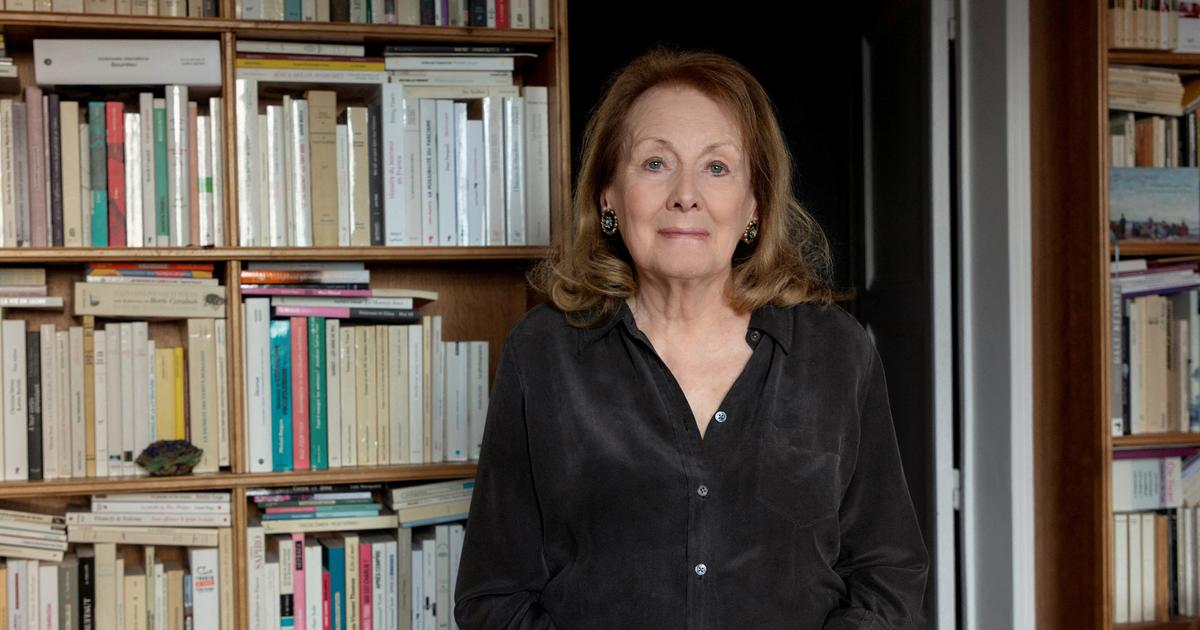She is the first French woman to win the Nobel Prize for Literature.
Through the work of Annie Ernaux, the Academy wanted to distinguish on October 6 an author who "constantly examines and from different angles lives marked by disparities, namely: gender, language and social class".
Questioned by the Swedish television channel SVT after the announcement of the distinction, the 82-year-old author affirmed to consider the latter as "a very great honor", and a "responsibility": "That is to say to testify of a form of fairness, of justice, in relation to the world.
*
This accuracy, this justice, it is to women that Annie Ernaux has always wanted to return it.
Her autobiographical novels, through which she recounted herself with a limpid pen, as sharp as it was sensitive, held up a unique mirror to several generations.
Social position, abortion, love, desire: our selection of 5 books that deploy a unique feminine look.
Trailer:
The Event
, by Audrey Diwan.
Daughter's Memory
(2016)
Summer 68, a summer camp in the Orne: Annie Ernaux is 18 years old and for the first time, spends a night with a man.
His book dissects this founding and irreversible episode, the brutal echo of which then resounds on his body and his life for two years.
And perhaps even more: “I wanted to forget this girl.
To really forget her, that is to say, to no longer want to write about her.
To no longer think that I have to write about her, her desire, her madness, her idiocy and her pride, her hunger and her dried up blood.
I never got there.”
Annie Ernaux also questions her relationship to writing: “I don't build a fictional character.
I deconstruct the girl that I was.
The Event
(2000)
1963, Annie Ernaux, who is still called Duchesne, her maiden name, at 23 years old.
She becomes pregnant: it is impossible for her to keep the child.
As a student, she already felt a desire to write that motherhood would only break.
Abortion is still illegal in France:
The Event
tells the story of a fighter, between powerless or malevolent doctors, a well-meaning friend who does not spare her judgment, an "angel maker" whose intervention will lead the young woman to the gates of death.
Without forgetting the sexism, and the class contempt with which this episode confronts her, more than ever: "I have finished putting into words what seems to me to be a total human experience, of life and death, of time , of morality and the forbidden, of the law, an experience lived from one end to the other through the body”.
To read alsoAudrey Diwan, director of
L'Événement
: "The story of Annie Ernaux speaks of violence, loneliness, but also of desire, enjoyment and freedom"
The Years
(2008)
This is undoubtedly the most extensive, dizzying book by Annie Ernaux: she recounts her life, from her childhood during the post-war years in Yvetot in Normandy, to the 2000s. A destiny that begins in a modest background (her parents' grocery store café, described in 1984 in
La Place
, the second essential novel, where the ambivalence of class defectors shines through), from which she will move away through studies, her job as a teacher, and the 'writing.
Adolescence in the 1960s, emancipation and learning, sometimes cruel, of love and sexuality.
Marriage, separation and children, eras of feminism, economic crises, the growing role of consumerism.
Like
The Frozen Woman
(1981), which denounced the yoke of patriarchy, the novel is mixed here with sociology, the intimate story with political analysis.
It's the story of a body and a mind that change, think, write.
A woman's life sometimes written in the third person singular, which is built, like so many others, through the common breath of several decades: "She would like to bring together these multiple images of her, separated, out of tune, by the thread of a story, that of its existence, from its birth during the Second World War until today.
A singular existence therefore but also melted into the movement of a generation.
Read also"The curse of being stuck between two worlds": when professional success comes at a high price
Simple Passion
(1992)
For a few months, the narrator lives an intense love affair with A, a married businessman from eastern countries.
A love that becomes like a single point towards which his whole existence is stretched.
Annie Ernaux recounts the hugs, the impatience at the thought of the next meeting, the waiting by the telephone, the joy and the pain in equal parts: "I was a child, luxury was for me the fur coats, long dresses and villas by the sea. Later, I thought it was to lead an intellectual life.
It seems to me now that it is also to be able to live a passion for a man or a woman.
The novel was adapted to the cinema in 2011 by Danielle Arbid, with Laetitia Dosch and Serguei Polunin.
Read alsoLætitia Dosch and Charles Pépin: "Real meetings will not take place on Instagram or through Zoom"
A Young Man
(2022)
In this very short book, Annie Ernaux recounts the love story she had with a man thirty years younger than her.
She writes about desire, which does not always forget the age of the body but is not diminished for all that, as well as about the memories of her own youth, which this connection brings back to life.
And describes the looks that arise on this couple considered out of the ordinary: “One Sunday, in Fécamp, on the pier near the sea, we were walking holding hands.
From end to end we were followed by all the eyes of the people sitting on the concrete curb along the beach.
A. pointed out to me that we were more unacceptable than a homosexual couple.
»

